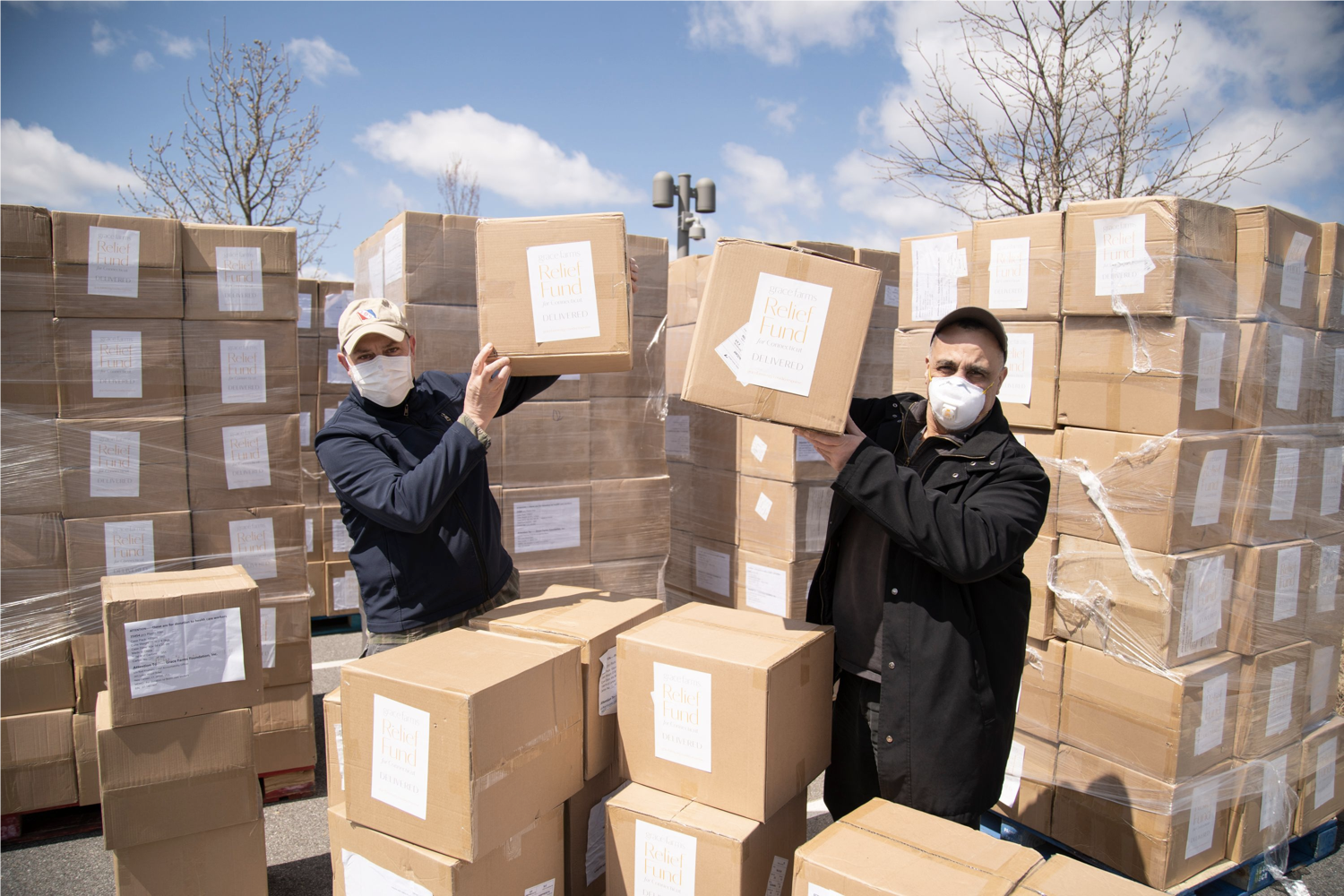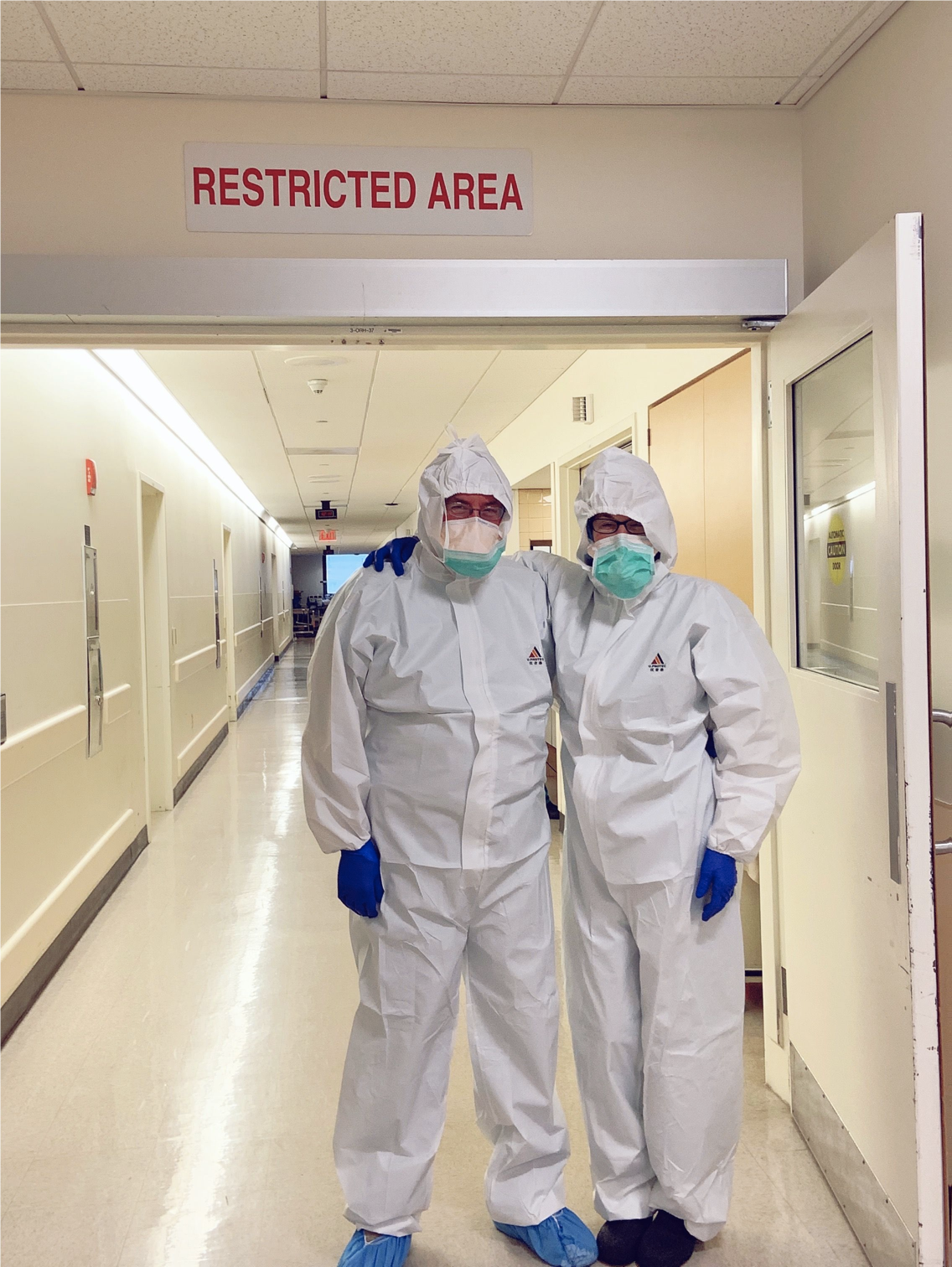How Can Philanthropy Elevate Entrepreneurialism Through Crisis?
By: Sharon Prince, Founder and CEO, Grace Farms Foundation
In order for foundations to harness our collective capacity to respond to the life-threatening coronavirus pandemic and the humanitarian issues that have become more acute because of it, we must elevate entrepreneurship, multi-sectoral collaboration, and even take calculated risks.
On a zoom call in mid-March, when local officials in Connecticut made clear that frontline health care heroes and first responders were facing a dire shortage of personal protective equipment (PPE), including critical N95 respirator masks, I made a promise to fill the statewide N95 respirator supply-demand mismatch gap. The Grace Farms Relief Fund for Connecticut was launched to accomplish this critical work. Our entrepreneurial ethos at Grace Farms Foundation, a private operating foundation and new kind of institution to advance good, was the catalyst to procure, donate, and deliver more than 1.9 million PPE—1 million of which was procured overseas, delivered and in use in just three weeks—and more than 62,000 pounds of food to our at-risk neighbors. We filled a PPE gap that, at the time, no one in health care or government was able to do.
Our foundation already has five interdisciplinary programmatic initiatives—nature, arts, justice, community, and faith—and medical equipment has never been in our purview. But I asked, how can we leverage Grace Farms and our extraordinary team while we are temporarily closed to address community needs that were developing in real time?
In this moment of unprecedented challenge, we needed to leverage all of our assets, including our extraordinary team. Mobilizing your team in crisis requires a new assessment of your team. When you only have hours or days to make a decision, you can’t hire out consultants. You need to look internally to every resource you have. We developed a first responder-like mentality, and our diverse team nimbly pivoted to address these critical shortages of PPE and access to food. We transformed Grace Farms’ Commons—typically a glass-enclosed community gathering space—to prepare healthy meals and provide staples to those in need in surrounding communities. And, we deployed our operational and programmatic expertise in a number of ways to actualize the PPE effort:
- Existing expertise: Leadership experience in understanding transnational borders, running task forces, and creating transnational networks through our Justice Initiative. For example, to usher in the first 100,000 N 95 respirators, our Chief Accountability Officer and Justice Initiative Director, Rod Khattabi, who leads our global effort to combat human trafficking and gender-based violence, moved into first-response mode and used his transnational customs and supply chain expertise to ensure delivery of PPE.
- Collaboration: Activated collaboration between government, private, and not-for-profit sectors to create an international network for sourcing, procuring, navigating shipping and customs logistics, and delivering PPE.
- Strategic pivot: Dedicated half of our team to activate our humanitarian distribution hub: to receive shipments; log and label PPE; deliver; respond in real time; prepare meals; code new website pages; and communicate and manage PPE requests online.
I reached out to our international network of partners and built an Alliance that had the support of state and international governments and included private foundations, corporations, and even our local volunteer firefighters. While businesses and municipalities were facing constant mirages of PPE orders, I took calculated risks in which I relied on trusted business relationships with likeminded values from US to China to successfully procure PPE domestically and internationally.
By bringing local and global individuals and organizations together, and then sticking with it until we saw supply chains open up, we were able to make good on what turned out to be an audacious commitment. We remained rooted in our Foundation’s values of grace, peace, excellence, with a focus on new outcomes, while working around-the-clock to ensure that our health care workers could work another day with protective equipment.As we move ahead, and face new challenges, we now know the tremendous potential of using our 80-acre site and mobilizing our team in new ways to serve our mission. It has been transformative to have had the opportunity to do visible life-saving work in providing food relief and PPE. When you deliver on an aspirational promise underpinned with grit, your institution or organization is emboldened.
Throughout this process, I have been reminded that you must be ready to respond to relevant societal and pressing issues that are often ignored and simmering, like inequality and systemic racism, or thrown at you with force by natural disasters, wars and pandemics. It is even more important however, that you stand up and do the right thing before the crisis with a diversified, expert team and partners with shared values and an entrepreneurial ethos. You can never significantly lead in crisis if you are not prepared to have instinctive responses grounded in your foundational building blocks – and your own institution’s values. Then, instinctively, you can take the risk to do the right things when the crisis hits.


